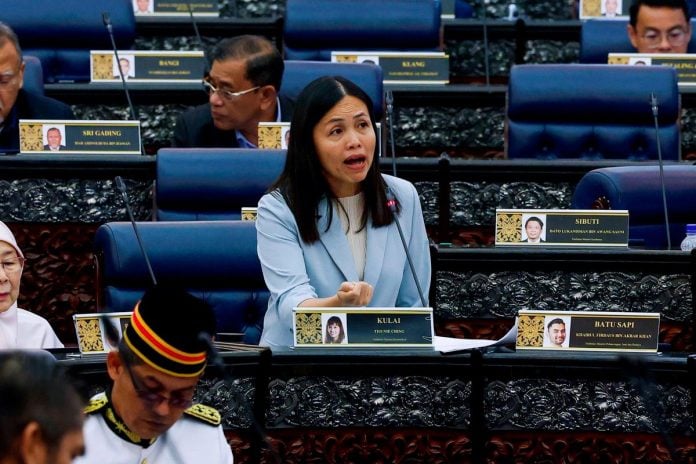PETALING JAYA: A total of 121 scam advertisements impersonating high-profile Malaysians have been reported so far this year, with official complaints submitted by the Malaysian Communications and Multimedia Commission (MCMC) to Meta said Deputy Communications Minister Teo Nie Ching in the Dewan Rakyat today.
She also criticised Meta for continuing to allow such scam ads on its platform, revealing that impersonation ads using her likeness are still appearing on Facebook — despite multiple complaints.
“This clearly shows that Meta accepted money from scammers to run these ads.
“Even after being informed, they allowed these ads to repeatedly go live,” she said.
“These incidents show how urgent it is for us to hold platforms accountable.”
She further urged all MPs to support measures to take firm action against companies like Meta.
Teo also announced that the Online Safety Act, passed earlier this year, officially came into force on May 22, 2025.
Under the Act, MCMC is now developing subsidiary legislation and an Online Safety Code, which will mandate clearer responsibilities for platform providers in mitigating digital risks.
Malaysia is also studying models from countries like Singapore and Taiwan. Singapore requires identity verification for social media advertisers, while Taiwan mandates platforms to disclose the identities of ad sponsors.
“If proven effective, these models will be incorporated into our own regulatory framework,” Teo said.
To tackle scam exposure more broadly, Teo said MCMC and other government agencies have rolled out various awareness and digital literacy initiatives, including the Kempen Internet Selamat (KIS), which began in January 2025.
“We are bringing this campaign to schools, universities, and local communities to teach digital literacy through interactive activities. It’s time to scale up our outreach,” she said.
However, Teo stressed that awareness campaigns alone are not enough — stronger enforcement is crucial.
“The real issue is the lack of mandatory ad screening. Platform providers must be required to carry out stricter checks before approving ads,” she said.
“If they continue enabling these scams, we must consider legal avenues to hold them accountable — even as accomplices,” she added, urging the Attorney-General’s Chambers (AGC) to explore possible test cases for prosecution.
“For now, MCMC is working on developing a code under the Online Safety Act that will help create a safer digital ecosystem for all users,” she said.










